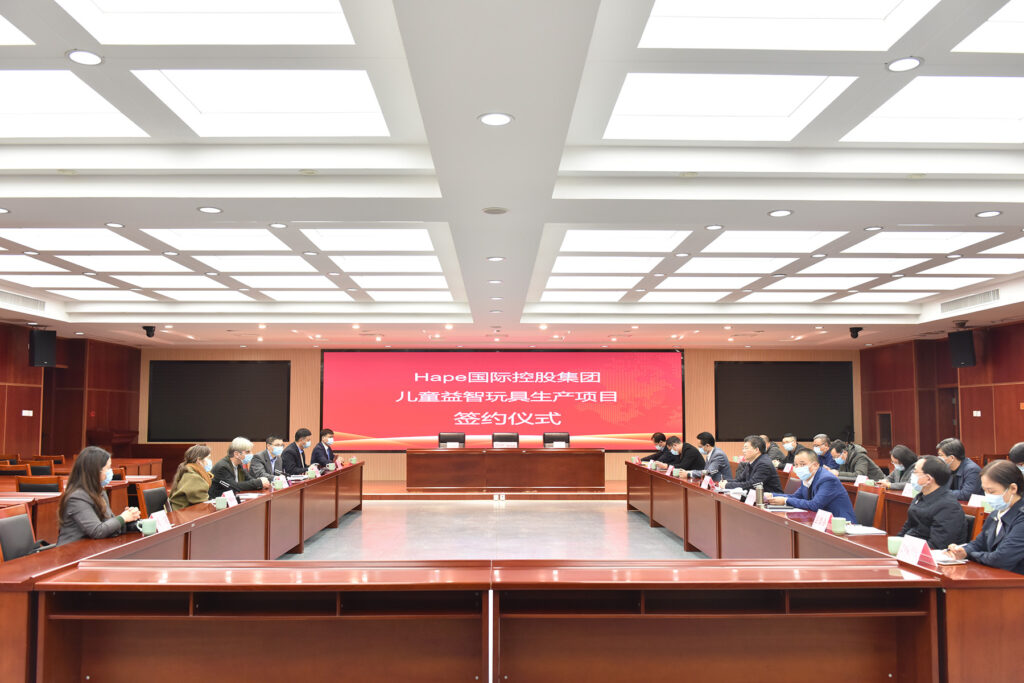Hape Group Invests in a New Factory in Songyang

31st Jan, 2021, Songyang, China
Hape Holding AG. has signed a contract with the government of Songyang County to invest in a new factory in Songyang. The new factory’s size is about 70,800 square meters and is located in Songyang Chishou Industrial Park. According to the plan, construction will start in March and the new factory will begin production in the end of 2021. The factory will be multi-functional, acting as Hape’s new production base, product warehouse and a research space for early education. It will follow Hape’s environmentally manufacturing concept to produce eco-friendly toys.
As introduced officially, Songyang has a pleasant ecological environment, and is known as China’s National Ecological County. Meanwhile, there is huge development potential in Songyang, as the biggest tea market in China, No.3 in national stainless steel industry and a leader in the tourist industry. Also there are highways, a high-speed train and an airport is being built. Songyang is the important transportation hub in South-West of Zhejiang Province, which means the county has great potential for future growth.
The government of Songyang sincerely welcomes Hape’s investment and will keep fully supporting Hape’s further development in the county.
The Founder and CEO of Hape Group, Peter Handstein said: “Our commitment to the society – maintaining the bamboo forest, making toys out of wood, etc. – is very much in line with Songyang’s identity, which is environmentally friendly. Especially through last year, we are finding that more and more consumers are becoming concerned about environmental protection, asking questions such as “How is it produced?” or “What materials have been used?” And I think we have a great potential in this area in the future.”
Hape pays close attention to children’s early education and we’d like to collaborate with Songyang Kindergarten Teachers College on better education for the next generation. By introducing Western educational theories, like the Montessori Method, Friedrich Wilhelm August Froebel’s experience curriculum, etc., we can find a connection and balance between Western and Chinese methods. We will learn from each other and work together on early education which is meaningful and valuable for the whole society.